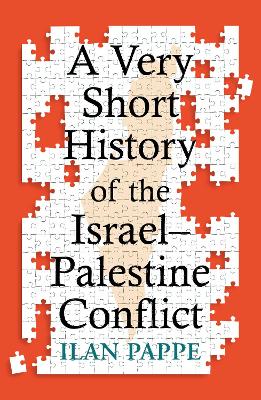
A Very Short History of the Israel-Palestine Conflict
Ilan Pappe
£9.99
Description
An indispensable guide to understanding the Israel-Palestine conflict, and how we might yet still find a way out of it.
‘Ilan Pappe is the most original, radical and hard-hitting of Israel’s “new historians”.’ Avi Shlaim, author of Three Worlds
The devastation of 7 October 2023 and the horrors that followed astounded the world. But the Israel-Palestine conflict didn’t start on 7 October. It didn’t start in 1967 either, when Israel occupied the West Bank, or in 1948 when the state of Israel was declared. It started in 1882, when the first Zionist settlers arrived in what was then Ottoman Palestine. Ilan Pappe untangles the history of two peoples, now sharing one land. Going back to the founding fathers of Zionism, Pappe expertly takes us through the twists and turns of international policy towards Israel-Palestine, Palestinian resistance to occupation, and the changes taking place in Israel itself.
Publisher Review
‘Ilan Pappe is the most original, radical and hard-hitting of Israel’s “new historians”.’ Avi Shlaim, author of Three Worlds ‘A Very Short History of the Israel-Palestine Conflict is the best primer available on one of the world’s most persistent settler-colonial tragedies. Amid the carnage of the Gaza genocide, it is essential to listen to Ilan Pappe, a preeminent historian of the Middle East, and a heroic scholar committed to justice and freedom.’ Abdel Razzaq Takriti, Arab-American Educational Foundation Chair in Arab Studies ‘Ilan Pappe clearly and concisely exposes the brutal history of Israeli occupation and apartheid over more than a century, providing some compelling insights into the origins of the current conflict.’ Grace Blakeley, author of Vulture Capitalism
Find this book on the following lists
-
October 2024 New Releases: Worldwide and Non-European History
Browse The List -
Autumn Non-Fiction Highlights: Current Affairs – Israel & Palestine
Browse The List -
What is Team B Reading This Week?
Browse The List
Book experts at your service
What are you looking for?


